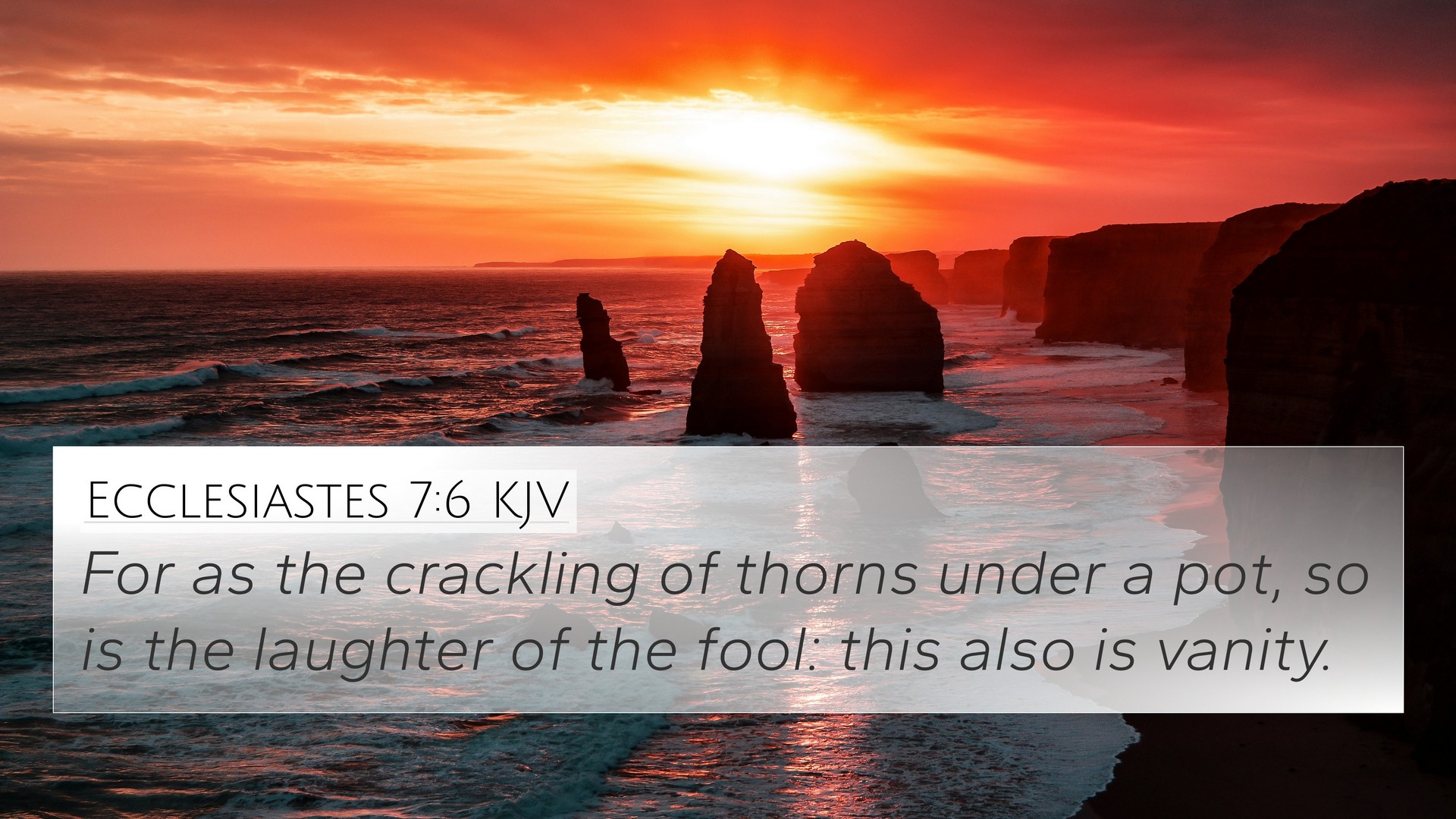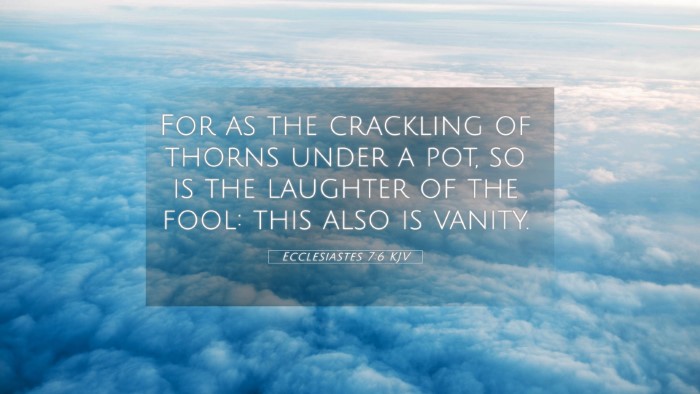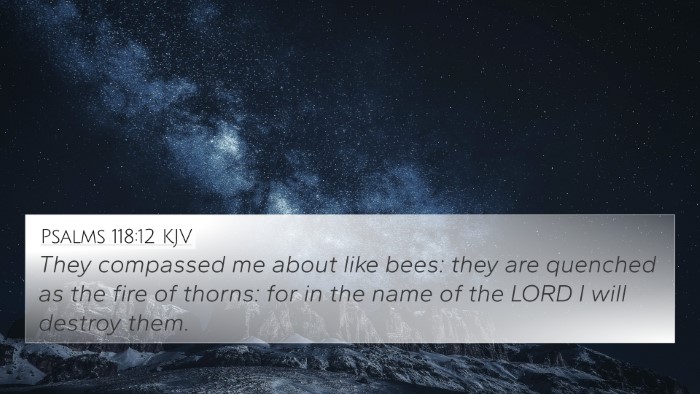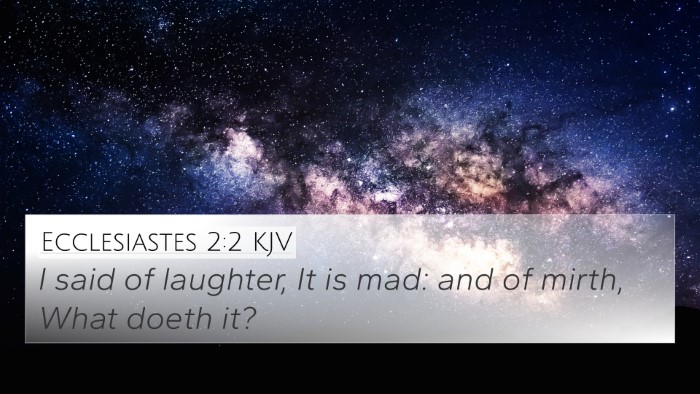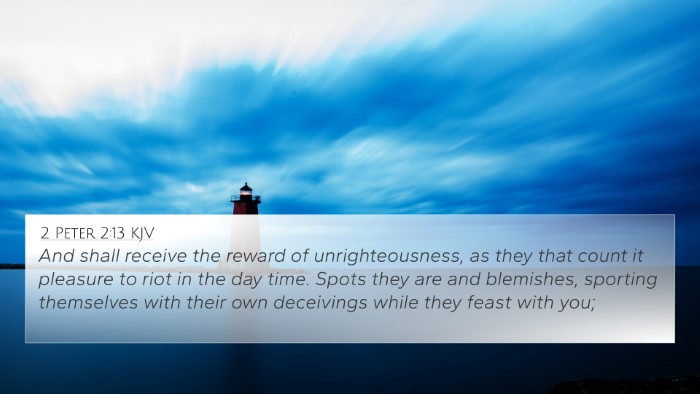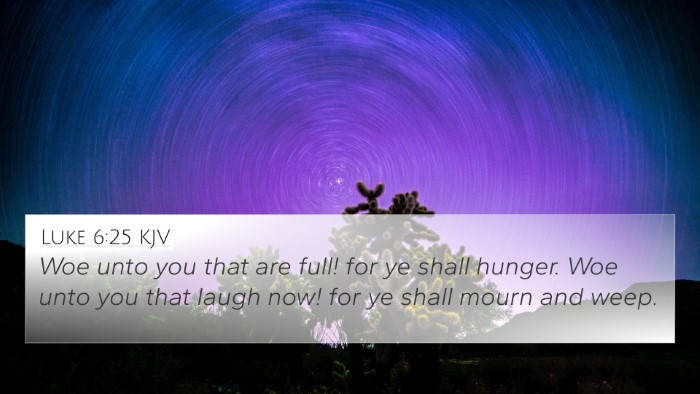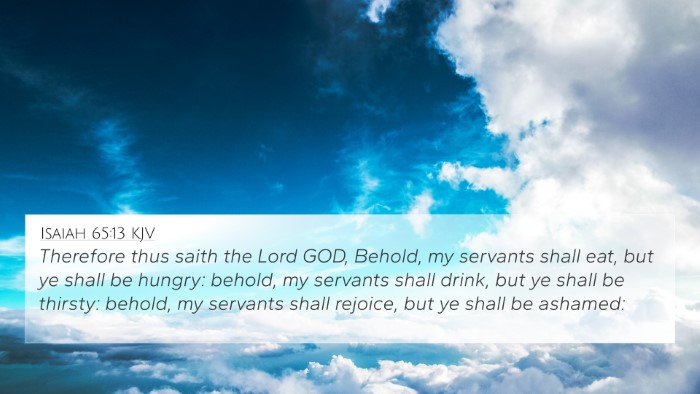Understanding Ecclesiastes 7:6
Ecclesiastes 7:6 (KJV): "For as the crackling of thorns under a pot, so is the laughter of the fool: this also is vanity."
The passage from Ecclesiastes 7:6 serves as a poignant reflection on the nature of folly and the fleeting nature of foolish joy. Almost like a quick flash of flame, the laughter of a fool is compared to the irritating crackling of thorns used as fuel beneath a pot. This imagery invites the reader to delve deeper into its meanings and implications.
Interpretation and Insights
- Matthew Henry's Commentary: Henry emphasizes the superficiality of the fool's laughter and how it is momentary, lacking substance or lasting joy. He suggests that while the fool might seem to find pleasure, it ultimately leads to emptiness and reflects a life unmoored from wisdom.
- Albert Barnes' Commentary: Barnes highlights the contrast between the joy of the wise and the momentary laughter of fools. He points out that just as thorns burn quickly but do not provide warmth or nourishment, so too is the mirth of the fool transient and shallow.
- Adam Clarke's Commentary: Clarke elaborates on the analogy of thorns, noting that while they can produce a loud noise, they offer no real benefits. He suggests that worldly joy is akin to this noise—displaying activity but lacking real fulfillment. Clarke also touches on the greater theological narrative that contrasts human folly with divine wisdom.
Thematic Connections
This verse opens the door to explore themes of wisdom versus folly throughout Scripture. Below are various connections between Bible verses that resonate thematically with Ecclesiastes 7:6:
- Proverbs 14:9: "Fools make a mock at sin: but among the righteous there is favor." - This verse introduces the behavioral aspect of fools and their disregard for wisdom.
- Proverbs 1:7: "The fear of the LORD is the beginning of knowledge: but fools despise wisdom and instruction." - It emphasizes the foundational relationship between fear of the LORD and acquiring wisdom.
- Ecclesiastes 2:2: "I said of laughter, It is mad: and of mirth, What doeth it?" - This verse reflects a similar contemplation on the temporary nature of laughter.
- James 1:22: "But be ye doers of the word, and not hearers only, deceiving your own selves." - Highlighting the importance of action based on wisdom rather than empty amusement.
- Luke 6:25: "Woe unto you that laugh now! for ye shall mourn and weep." - This New Testament verse serves as a prophetic warning against the fleeting joy associated with foolishness.
- Psalm 37:13: "The Lord shall laugh at him: for he seeth that his day is coming." - The laughter of the Lord stands in contrast to the empty mirth of the wicked.
- Matthew 7:26: "And every one that heareth these sayings of mine, and doeth them not, shall be likened unto a foolish man, which built his house upon the sand." - Here, fools are metaphorically likened to those who ignore wisdom, leading to their downfall.
- Proverbs 10:23: "It is as sport to a fool to do mischief: but a man of understanding hath wisdom." - This underlines the nature of foolishness as one that finds pleasure in misguided actions.
- Isaiah 32:6: "For the vile person will speak villany, and his heart will work iniquity, to practice hypocrisy, and to utter error against the LORD..." - A discussion on the traits of fools within a broader moral context.
- Proverbs 17:12: "Let a bear robbed of her whelps meet a man, rather than a fool in his folly." - This reflects the inherent danger of foolishness and its implications.
Application of Cross-References
By employing tools for Bible cross-referencing, we can uncover layered meanings and thematic connections in biblical texts, such as:
- Identifying connections between Old and New Testament verses aids in understanding overarching biblical themes.
- Using Bible concordance and reference resources can enhance our ability to find related verses and enrich our study.
- Bible cross-reference guides help streamline the process of linking scriptures, ultimately enriching personal study or sermon preparation.
Conclusion
Ecclesiastes 7:6 serves as a sobering reminder of the transience of worldly pleasure observed in the laughter of fools. By cross-referencing related verses, we can deepen our understanding of biblical themes, such as the distinction between wisdom and folly. Whether one is preparing a sermon, engaging in personal study, or seeking a deeper spiritual understanding, the connections between these verses illuminate the richness of God's Word.
